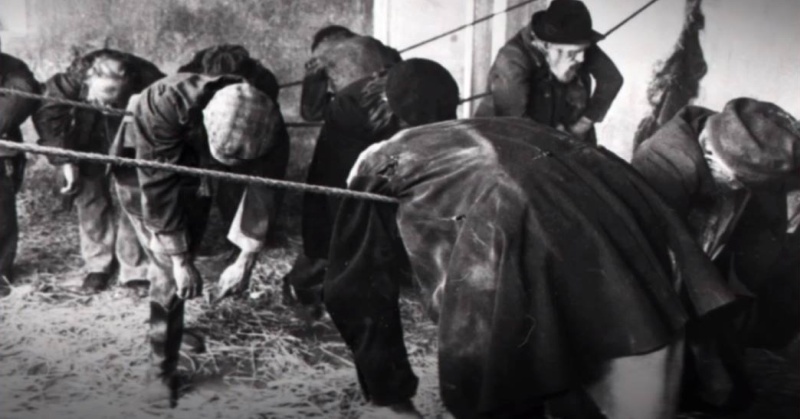We all know the meaning of the word ‘hangover’, don’t we? Sure, most of us has had that rather painful experience at some point (or many points) in life, but do we really know what “hanging over” means? Well, we have recently come across this meme on social media and were curious to find out whether what it says is true. Here’s what we’ve found.

Well, apparently, there was once a sleeping system like that indeed!
In Victorian England, the concept of a ‘two-penny hangover’ gained widespread popularity among the homeless population in the country. The term ‘two-penny hangover’ was so commonly used that it found its way into the literature of that era.
Contrary to what it might sound like, it didn’t refer to a cheap night out or the cost of getting drunk. Instead, it denoted a place where individuals who were homeless and destitute, particularly those living in the country’s major cities during that period, could find shelter and rest for the night.

If you happened to be a person living on the streets and had managed to earn some money during the day, your options for spending the night varied depending on your budget: you could pay a penny for a sitting spot, two pence for a ‘hanging-over’ spot, or four to five pennies for a lying-down spot.

The rooms were not heated and the person running the place unhooked the rope and kicked everyone out a 6am. Almost every morning some old timer would not get up, dead and frozen. The principal reference for such an establishment is George Orwell’s Down and Out in Paris and London of 1933:
“At the Twopenny Hangover, the lodgers sit in a row on a bench; there is a rope in front of them, and they lean on this as though leaning over a fence. A man, humorously called the valet, cuts the rope at five in the morning. I have never been there myself, but Bozo had been there often. I asked him whether anyone could possibly sleep in such an attitude, and he said that it was more comfortable than it sounded — at any rate, better than bare floor.”

The twopenny hangover is also mentioned in a work from a century earlier, The Magic Skin by Honoré de Balzac: “We … made it a point of honour to find out whether you were roosting in a tree in the Champs-Elysées, or in one of those philanthropic abodes where the beggars sleep on a twopenny rope.”
The correlation appears quite compelling, with Orwell himself using the term “hangover” to explain the approach. Nevertheless, when examining the historical context of the term, it becomes evident that it originates from the concept of something that endures or lingers – a remnant or consequence – of intoxication, rather than someone physically being suspended over something.
The two-penny hangover has also been suggested as the possible origin of to be able to sleep on a clothesline, meaning to be so extremely tired one could sleep anywhere. There might be an association there, though it’s impossible to be sure.
